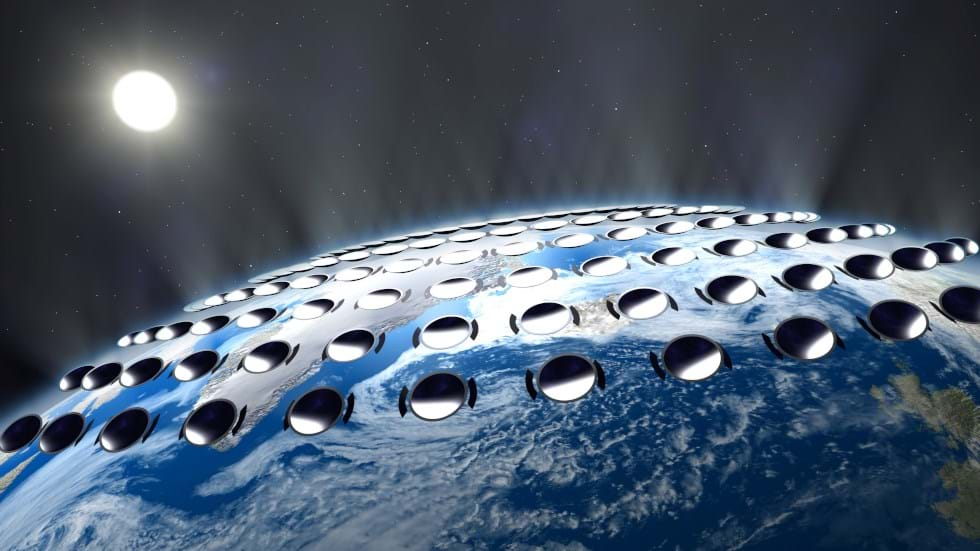Space mirrors and volcano drones: £56m awarded for geoengineering experiments
UK’s moonshot agency offers largest funding yet for divisive research

SCIENTISTS have been awarded more than £56m (US$74m) in funding by the UK’s moonshot innovation agency to investigate whether launching mirrors into space, thickening Arctic sea ice and disrupting clouds could reduce global temperatures.
The UK’s Advanced Research & Invention Agency (ARIA), which was established by the government in 2023 to fund high-risk, high-reward research, has announced funding for 21 research teams to look at the ethics of geoengineering, model the impacts, and begin to conduct small-scale trials.
The divisive approaches – known as solar geoengineering – focus on preventing heat being trapped in the atmosphere or reflecting away sunlight.
Sunshades in space
A team involving engineers at NASA and the University of Nottingham has been awarded £400,000 to model six conceptual designs for space reflectors. The idea is that giant sunshades could be launched into space to reduce the amount of light hitting Earth. Their models will simulate the potential climate impacts and provide data on which designs are worth pursuing.
This article is adapted from an earlier online version.
Recent Editions
Catch up on the latest news, views and jobs from The Chemical Engineer. Below are the four latest issues. View a wider selection of the archive from within the Magazine section of this site.




